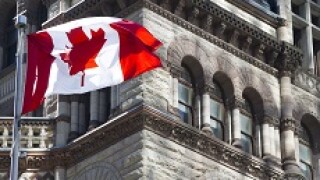Canada
-
The Province of Ontario raised $1.75bn with a rare seven year dollar benchmark on Thursday. The transaction shared the market with a five year from Japan Finance Organisation for Municipalitities.
-
The Republic of Finland had to share its return to dollar market on Wednesday with a trio of three year SSA deals. Demand for dollar SSA bonds has been strong this week, and with mandates out for five and seven year deals,issuers are still looking to take advantage
-
Five public sector borrowers are marketing dollar bonds across the curve kicking off what it is expected to be a busy week in the currency.
-
HSBC Canada issued the most oversubscribed dollar-denominated Canadian covered bond in years on Thursday, and still managed to price 28bp tighter than the Canadian heavyweights.
-
HSBC Canada is set to become the third Canadian bank to issue a dollar covered bond this year, mandating leads for a three year transaction on Tuesday. Given a strong secondary market performance, HSBC Canada should be able to price its deal a lot tighter than its predecessors.
-
The European Investment Bank and the Region of Madrid stood out in the public sector bond market this week, with the former achieving its biggest ever order book for a euro benchmark.
-
The European Investment Bank achieved its biggest ever order book in euros on Tuesday, as it sold its first seven year benchmark of the year.
-
A trio of Wall Street heavyweights tapped the dollar market in size this week, with investors pouring cash into new deals.
-
Canadian banks should be applauded for funding themselves in public with deals bought by real investors in a range of currencies at actual market clearing levels — astonishing though that may be for the many entitled European issuers that have shamelessly become accustomed to central bank funding.
-
The prices of Western Canada Select and West Texas Intermediate dropped below zero during trading on Monday, spelling trouble for issuers in the already underperforming Norwegian krone and Canadian dollar.
-
CPPIB Capital, the Canada Pension Plan Investment Board, dived into the long end of the sterling bond market on Monday for a bumper follow-up to January’s jumbo debut.
-
High quality Yankee issuers showed their spirit of adventure by printing front-end trades this week, returning to a part of the curve that has been starved of supply since the start of the coronavirus crisis.












